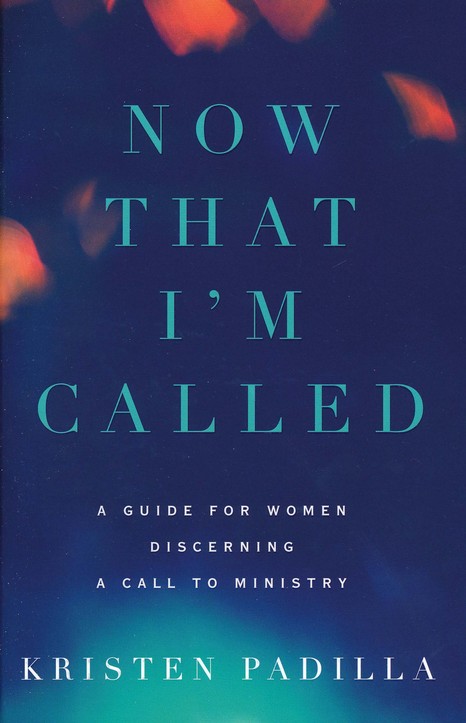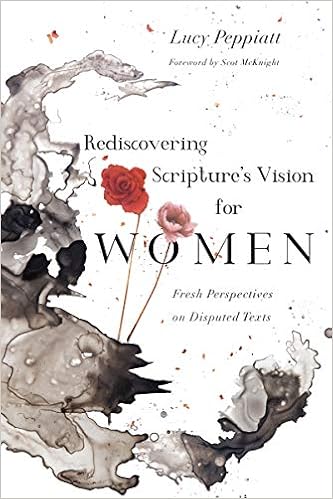Our sense of the biblical story is shaped by who has told us the story. Our narrators have lingered over particular details. They've skipped over others. We see what they tell us to see. As a consequence, sometimes the truth is right under our noses, but we've missed it entirely.
I know this because my students tell me so. Last night at an event on campus, a few of my students told me what a huge difference it makes to have a Bible class with a woman. They are hearing different things. The text is framed in fresh ways.
It's the same text, of course. The truth is still the truth. I bring nothing new to the Bible except a new set of questions to investigate what has always been there. The text yields different answers when we ask different questions.
Is the Bible good for women? Whose has power in this story? Who is doing the telling? Where are the women?
I have not always asked these questions. I was already in my 40s the first time someone asked me to read the Bible as a woman. I'm not new to biblical studies. I attended a private, Christian school with regular Bible classes from Kindergarten through high school graduation. Then I headed to Bible college for four years of robust training in engaging the biblical text, followed by five years (part-time) in seminary and five more years (full-time) in graduate school, where I earned a PhD in Biblical Theology with a concentration in Old Testament. I had a grand total of one female instructor for a Bible class, a grad student who worked under the male professor of record (both of whom were wonderful). I was blessed to have two female Bible scholars on my dissertation committee, but I never had a class with either of them. I have never studied theology with a woman professor. Only once in all these years of school (that I can recall) did a Bible or theology professor ask me to read a book written by a woman.
Then suddenly at 43 years of age in the space of a few weeks not one but two Christian publishers asked me to contribute textual notes for women's study Bibles. I have never read a woman's study Bible. I wondered whether women even need their own Bibles. But as I prayerfully considered these opportunities, I felt the Spirit of God nudge me to say "yes" to both projects. I'm so very glad I did.
Both projects -- one for Tyndale House and one for Lifeway -- envisioned a Bible that would meet women where they are, addressing their questions and concerns and helping them encounter God in a fresh way. It was a powerful experience for me to return to the pages of Scripture with this goal in mind. What will women wonder when they read this text? What will bother them? What will encourage them? How do women contribute to the storyline of the Bible? How does this text call women in particular to respond faithfully?
I have always held a high view of Scripture. I believe it is the word of God for the people of God. I believe it is inspired and authoritative. I believe the Spirit of God works through Scripture as we read and helps us to respond to it. I even believe that the meaning of the Bible is tethered to the author's intent. However, as I read Genesis and Exodus with these new questions in mind, I noticed things I had never seen before. I encountered God in powerful ways. I wrestled more deeply, and as a result I came away with a deep conviction that the Bible is good for women. When we only ever hear the Bible taught by men, whose questions and contexts are in some ways different than those of women, we risk not seeing the whole picture.
Intentionally reading the Bible as a woman and for women felt like finally slipping into an outfit that fit after a lifetime of hand-me-downs that were too tight in some places and baggy in others and which didn't quite match the rest of my outfit. I began to wonder if I needed to write a whole book about the experience. After all, since most pastors are men and most sermons are by men and most Bible teachers are men, a lot of other women (and men!!) might be missing out on these insights, too.
About that time, I sat down to read Kat Armas' book Abuelita Faith: What Women on the Margins Teach Us About Wisdom, Persistence, and Strength. I read it because not only do we have a lot to learn from women, we have a lot to learn from the global church.As her website explains,
"Kat Armas, a second-generation Cuban American, grew up on the outskirts of Miami's famed Little Havana neighborhood. Her earliest theological formation came from her grandmother, her abuelita, who fled Cuba during the height of political unrest and raised three children alone after her husband passed away. Combining personal storytelling with biblical reflection, Armas shows us how voices on the margins--those often dismissed, isolated, and oppressed because of their race, gender, socioeconomic status, or lack of education--have more to teach us about following God than we realize."
Writing as a Cuban-American woman prompts Kat to ask a different set of questions of the biblical text. She invites us to listen in and pay attention to a broader range of voices and experiences in the biblical text. Her book is magnificent. I closed it and said, "I don't need to write the book. Kat has already done it!"
Armas amasses mountains of evidence that God calls and equips women. God honors women. God commissions women to participate in kingdom work. For Armas, the biblical narrative disrupts the status quo and points to women on the margins as a source of wisdom, persistence, and strength. Not only does Kat write beautifully, she exegetes Scripture faithfully and calls the church boldly to turn our gaze outward and learn from new voices. I'm so grateful for her work and I'm excited to share it with my students.
The Bible is good for women. I'm finally learning to articulate how and why.
 |
| Mary Comforts Eve, by Elizabeth Rubio (prints available by contacting the artist directly) |
Women are an integral part of the story of redemption. Eve's partnership with Adam in tending the garden of Eden illustrates one of the roles to which women are called. Eve's subsequent rebellion, for which she was personally held accountable, affirms the agency of women and underscores that our choices matter. Mary's willing submission to God's work suggests that women have not been written out of the story. God chose a woman to birth and nurture the Savior. From the cradle to the cross and from the ascension to the pouring out of the Spirit, Mary stands as a model for all believers, inviting us as participants in the kingdom of God.*
Gender isn't everything, but it's something. We can rush past these women and many more, but if we do, we're missing out on part of God's beautiful story of redemption. Let's listen to new retellings of the old, old story and see what we might have missed.
*For more on Mary from an Evangelical perspective, see Amy Beverage Peeler's impressive new book, Women and the Gender of God (Eerdmans, Fall 2022).
.jpg)





















